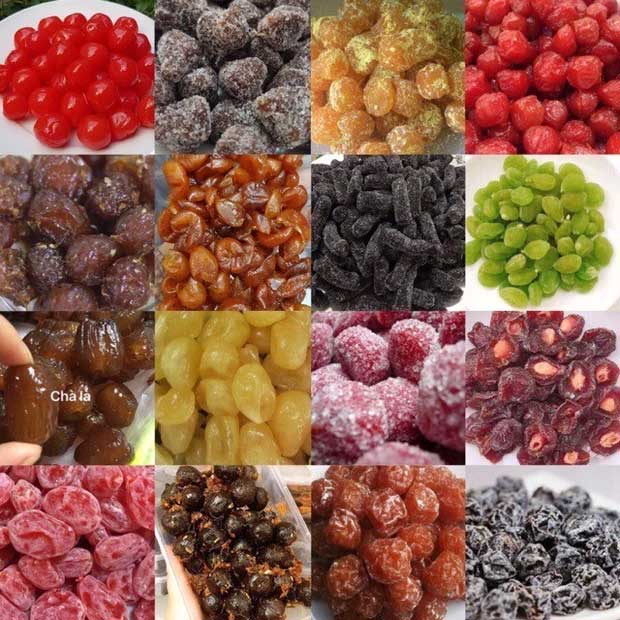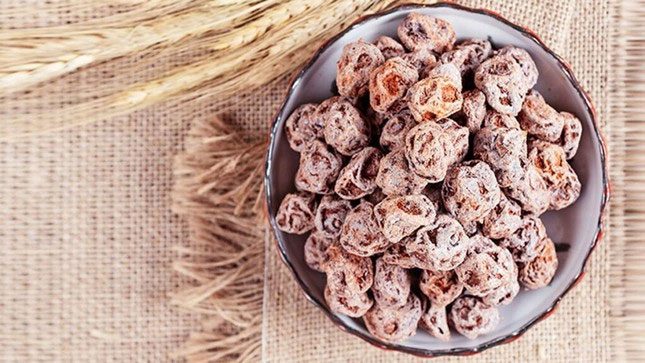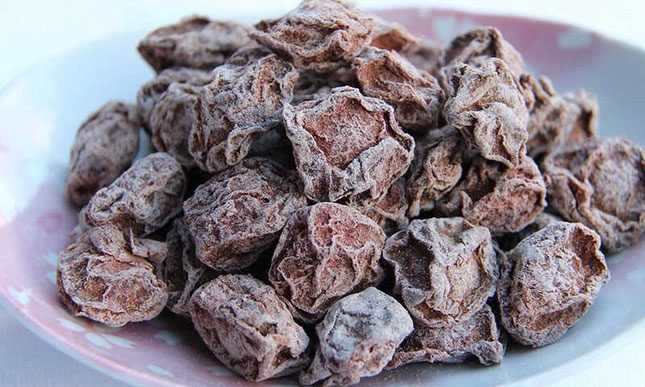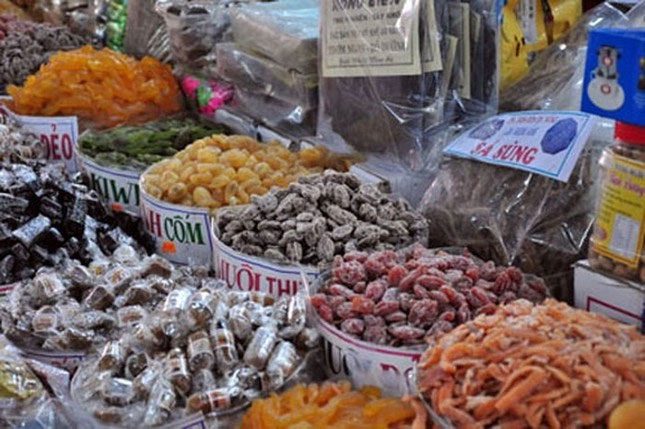O mai (xi muoi) is a popular snack enjoyed by many. Its distinctive flavor is also an essential part of celebrations and holidays. O mai is known for its medicinal properties, helping to treat sore throats and hoarseness, making it beneficial for health. However, if one is not careful, consuming o mai can lead to some serious unwanted effects.
Important Things to Know When Eating O Mai (Xi Muoi)
What is O Mai?
O mai (black apricot) originally referred to a type of herbal medicine made from dried apricots that turn black and shriveled. O mai is also known as xi muoi. It is considered a common medicinal ingredient in traditional medicine across Eastern countries such as Vietnam and China.
Today, however, o mai is more widely recognized as a snack made from various fruits like apricots, plums, soursop, tamarind, green mango, starfruit, and more, rather than a medicinal product. These fruits must be carefully selected and processed with a variety of spices and flavorings to create the tastiest o mai.

There are many types of O Mai.
Benefits of O Mai
In traditional medicine, o mai is combined with other ingredients to treat chronic cough, hoarseness, bronchitis, and sore throats.
- O mai is used to treat cough, sore throat, hoarseness, and dryness in the throat, especially from cold infections.
- O mai combined with honey or ginger can help treat bronchitis and prolonged cough.
- O mai can also prevent roundworms and abdominal pain caused by them.
- It aids in fighting diarrhea, loose stools, and chronic dysentery. It can also help prevent cervical cancer and inhibit bacteria that cause diabetes.
Xi muoi is also often extracted into oil, which can help treat chapped skin and add shine to hair. Infused alcohol made from this herb can help cool the body on hot days.
In cuisine, this herb is enjoyed as a snack and is favored by many. Xi muoi is also considered a delicious jam, often displayed during traditional holidays and festivals.

O Mai is a medicinal ingredient combined with other ingredients to treat chronic cough.
Potential Harms of Eating O Mai
Health Risks from Additives in O Mai
To achieve the distinctive flavor and appealing color of o mai, the production process requires a significant amount of additives, chemical sugars, and colorings. These substances can be harmful if consumed in excess.
Colorings, especially those of dubious origin, are linked to liver and kidney diseases.
Some types of o mai that are overly salty may carry a risk of high blood pressure.
Furthermore, unknown additives in o mai, along with unclear expiration dates, can lead to food poisoning and digestive disorders.
Dangers of Consuming Low-Quality O Mai
In addition to the dangers posed by contaminated, homemade o mai, we also face risks from low-quality imported o mai.
Many types of o mai contain harmful additives, such as the sweetener saccharin, sodium cyclamate, coloring agents like carmine and amaranth, and preservatives such as sulfur dioxide.
Some investigations have even found that certain o mai contains high levels of lead, exceeding permissible limits. This poses a significant risk to health and even life.

Low-quality O Mai contains many harmful additives for human health.
Food Poisoning from Contaminated O Mai
Currently, contaminated and low-quality o mai is quite common in the market. The ingredients used to make these types of o mai are generally not guaranteed.
In fact, some investigations have uncovered production facilities using rotten fruits (such as soursop and calamondin) for production.
After being seasoned, these unclean and unsanitary ingredients are processed into very appealing products that are hard to detect while eating.
Consuming such contaminated o mai significantly increases the risk of stomach pain. Additionally, it can lead to digestive disorders, food poisoning, and severely impact internal organs such as the liver, gallbladder, and kidneys.

O Mai, Xi Muoi is a favorite snack of many, especially women and children.
Cancer Risks
The chemicals used in processing o mai, particularly the sweetener cyclamate, are extremely toxic. Cyclamate is banned in food processing due to its high cancer risk.
O mai, xi muoi is a favorite snack of many, especially women and children. In cities and tourist spots, we can find numerous stalls selling o mai, xi muoi.
However, to protect health, consumers should purchase o mai from reputable stores and manufacturers, ensuring clear product origin, expiration dates, and ingredient lists. It is advisable to avoid purchasing o mai from dubious sources to safeguard well-being.


















































